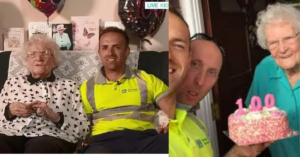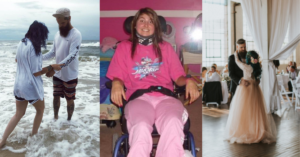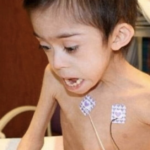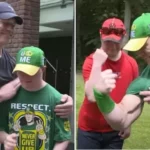She served as an example for others. You’ll be able to appreciate the duty or stress that comes with looking after children who aren’t your own if you’ve ever been a babysitter or assumed care of someone else’s kids.

facebook.com/Farra Gelato Rosko
Many nannies take their duties and their work extremely seriously. Additionally, they unquestionably go above and above what their parents expect of them. Such tales of nannies making the ultimate sacrifice for their charges are common.
When Kiersten Miles started working as the Rosko family’s nanny, she never anticipated she’d have a role in saving the youngster’s life. Miles, a student from New Jersey who was 22 years old and in need of employment to help finance her education, made contact with the Rosko family through a friend and started working there immediately away.

facebook.com/ Farra Gelato Rosko
Early in June 2016, I got to know the Roskos thanks to a close friend who had worked as a summer nanny for them and had suggested me. Because a friend had informed me of some of Talia’s past, I was aware that she had biliary atresia. Kiersten said.
A liver disorder called biliary atresia affects one in every 18,000 newborns. The bile channels that typically drain to the gallbladder become blocked, which allows the backed-up bile to harm the liver irreparably. The liver can temporarily drain into the gut thanks to a Kasai procedure, in which a portion of the small intestine replaces the ducts. The only known treatment for the illness is organ transplantation, and it has a very high chance of being effective.
George Rosko, the general manager of ACE Gymnastics in Ocean, New Jersey, and Farra Rosko, an administrator at Princeton University’s Plasma & Physics Laboratory, are Talia’s parents. They warned the parents that if a liver transplant is not performed, their daughter will probably pass away before the age of two. She had the Kasai surgery and was added to the liver transplant waiting list when the family hired Miles to watch their three kids for the summer, namely Mattea, 7, Trey, 5, and infant Talia.
Miles quickly determined that Talia Rosko, who was just nine months old, had a rare liver condition that only affects newborns. A few weeks into her position as a babysitter, she learned the infant required a liver transplant.
Without a second thought, Miles decided to have a donor match test done. When she made her choice, she had just recently gotten to know the Rosko family. She had, however, already forged a unique connection with the young child.
At first, George, Farra, and Rosko were dubious and conveyed to Kiersten how much of a troubling thing she was presenting. Giving a part of your liver is different from giving blood since it involves invasive surgery and has a number of dangers.
After watching Talia for approximately two to three weeks, I started to get curious in the entire liver transplant concept. Before meeting the family, I was unaware that you could donate a bit of your liver. I make an effort to donate blood whenever I can since it has never troubled me and a lot of people could use my blood type. I learned from my research that according to my blood type, I could be able to donate an organ to anyone.
Talia’s parents were first hesitant about the young babysitter making such a big decision, but they eventually changed their minds. However, they took care to avoid pressuring Kiersten into making a choice since they did not want her to later regret it.

facebook/Farra Gelato Rosko
Kiersten immediately submitted an application to be the baby’s donor after making a clear choice. She was a perfect match for the child once the test results were revealed. Surprisingly, Miles’ mother gave her daughter’s desire to donate her organs the strongest support possible.
On January 11, 2017, KIERSTEN and TALIA traveled to the hospital to have surgery together. KIERSTEN had no regrets.

facebook/Farra Gelato Rosko
Kiersten and Talia had already made a full recovery after a 14-hour treatment at the University of Pennsylvania Hospital and Children’s Hospital of Philadelphia. They are now flourishing. The infant is now acting like a toddler again and doing everything a toddler should be doing as a result.
However, one piece of information caused her to reconsider Kiersten’s choice of charity.
She said, “I discovered at one time that if I did this, I would never be able to give again. I had to give that some thought. In the hopes that someone would step forward if her future kid needed the same operation, she made the decision to move forward.
She has allegedly transformed a bleak circumstance into an optimistic one, claims Rosko. If it weren’t for Kiersten, we’d be waiting for a dead donor to show up and rescue Talia. We would be seeing the breakdown of our child. To be honest, I don’t want to think about what we would do if Kiersten left.

facebook/Farra Gelato Rosko
I think it’s important to spread awareness about organ donation in general and live organ donation in particular. But it is a tiny price to pay compared to saving a life, said Miles, since I believe it is crucial that people clearly understand what they are volunteering for and what the rehabilitation process includes.

facebook/Farra Gelato Rosko
share this with your family and friends!







